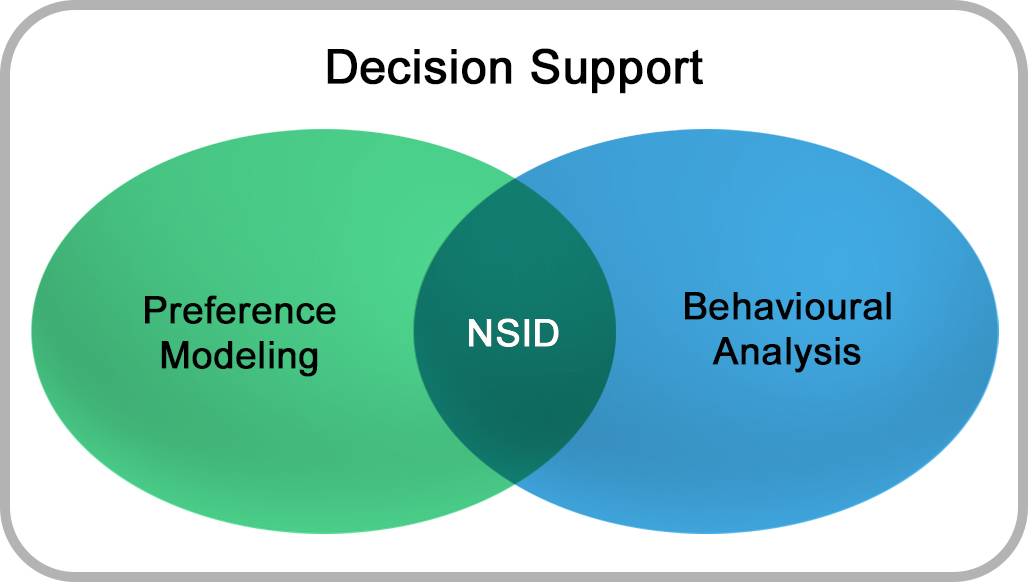NSID (Laboratory for Neuroscience and Behavioral Studies in Decision) is a laboratory linked to the Center for Development in Information and Decision Systems (CDSID) and is located on the premises of the Department of Production Engineering (DEP) of the Federal University of Pernambuco (UFPE). The NSID has a multi-user scope, serving several research groups, whether from DEP, from other Departments of UFPE. The NSID is linked to several Graduate Programs, especially the PPGEP – UFPE (Graduate Program in Production Engineering at UFPE), which has a concept 7 by CAPES.
At the NSID, advanced research is developed in the areas of decision support and negotiation, integrating behavioral information from decision makers and mathematical models to support decision making. Therefore, these studies are supported by neuroscience tools, techniques and methods. Through the use of psychophysiological measures, explanations are sought – and their implications – about various behavioral aspects perceived in the decision-making and negotiation processes.

The decision process is characterized by being multistage. When dealing with complex and relevant problems in the most diverse areas of knowledge, this decision-making requires the appropriate selection and use of various methods and techniques to support the decision-making process. These problems involve at least two alternatives for action that meet multiple objectives and criteria, often conflicting with each other.
In the NSID, different characteristics of the methods of multicriteria decision making, negotiation and group decision existing in the literature are being studied. The methods for multicriteria decision making are used in order to elucidate the process of choosing, classifying or ordering potential actions, adding multiple aspects to the decision context. In this sense, given the complexity of understanding and assessing the problem, computational tools are required in order to assist the decision-making process. On the other hand, the aspects related to negotiation issues aim to help two or more parties involved to achieve their goals with a negotiation, through an agreement in situations where there are common but conflicting interests. Negotiation is the key approach to decision making so that consensus can be reached whenever a person, organization or other entity is unable to achieve its objectives unilaterally.
To get an idea of the main line of work of the NSID and its impact, the following is the Editorial of the edition of the Annals of Operations Research on work developed at the NSID (Roselli et al, 2020):
“To help facilitate rational decision-making, many formal mathematical methods and models have been developed. Nonetheless, an application of such methods can artificially bias decisions, because these approaches cannot capture the real cognitive process performed by the decision maker. As a result, model generated solutions may incorrectly represent the natural choices of a person. Roselli, de Sousa Pereira, de Lima da Silva, de Almeida, Morais and Costa employ two inexpensive and non-invasive neuroscience methods, namely EEG and eye-tracking, to inform a decision support system whether a person is fully engaged and motivated. It is an interesting direction for the development of effective decision support systems because it allows optimizing not only the decision but also the engagement and attention of the decision maker. This paper indicates that modern mathematical approaches may, and probably should, be extended to account for behavior as well as emotional and cognitive states of the decision maker”.
